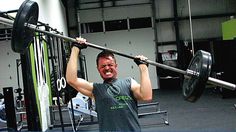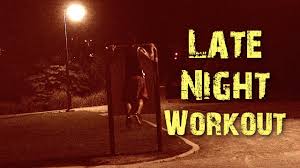
Tip 2: Foods to Avoid
Concentrated Sweets
Sugar, Honey, Syrup, Molasses
Candy
Frosting
Jelly, Jams, Perserves (with sugar added)
Marmalade, Cranberry Sauce
Condensed Milk (sweetened),
Sugar coated cereals
Fruits canned in syrup rather than in own juice
Beverages
Presweetened Drink Mixes
Carbonated Drinks (a). depletes phosporus in your bones and b). both sugar and artificial sweetener are proven to make you crave more and more)
Sweetened Fruit Juices or Punches
Alchoholic beverages
Dietetic Foods
Dietetic Candy, Cake, Cookies, Ice Cream
Sugarless Mints
a). Because of the high prices
b). The sorbitol chemical used to sweeten many of the dietetic foods – causes diarrhea in some individuals
c). Labels trick you into thinking you are eating healthier but often the sugar/caloric count is not much lower than real foods.
Dietetic foods as they are synthetic foods (not rich in natural value) specifically formulated for people on restricted diets. One should eat healthy foods to consume adequate calories. These calories can come from healthy natural foods not from junk foods or processed synthetic foods.
Artificial Sweetners
Boy that’s hard to do sometimes but if you must have sweet – use everything in moderation.
Your brain can not tell “real” from “artificial” sweet. So when you consume say, a diet pepsi…your brain says: “Wow, I just got sugar, so it tells your pancreas to produce insulin to balance your blood sugar level.
Problem is, you didn’t take in sugar, you took in artificial chemicals so your blood sugar is now dropping…and you now want to eat a snickers bar to catch up on your energy drop!!
– They have proven that people who drink diet pop – gain more weight.
One thing that gives me "strength" to get a handle on what goes in my mouth is simply that I will not be a slave to Anything!
Coffee, cigarettes, chocolate, NOTHING is going to control my life other than my Heavenly Father!
If I start getting headaches because I haven't had my "normal" dose of morning coffee - I switch to herbal tea or something else until my body is back to not craving that caffeine "hit".
If I just NEED chocolate, (I mean to the point of getting in to the baking chocolate chips bag and melting them with marshmallows and rice Krispy cereal and pigging out kind of Needing....!)...then I figure out Why.
The Why you crave chocolate is because you are magnesium deficient. Especially, ladies the week of or prior to that time of the month when your body is sluffing off unneeded blood (if you're not making a baby that month)
Your body loses iron and magnesium along with other nutrients you need for energy so - nature makes you crave the foods that contain those nutrients.
So the solution to not craving chocolate is: take a calcium-magnesium supplement to get you levels back up where they should be. It works.
Caffeine and nicotine craving is typically from low energy. So make healthier food/beverage choices to get your body energy back up naturally. Also - adequate sleep so you're not hitting bottom on the energy scale during the day.
Different people react differently to the same food
But the truth is that different people react differently to the same food. Also, the experts don't agree on the diet that sufferers should keep, so there are several recommended.
Some think that food intolerances and allergies are the main culprit that is why they recommend doing the tests to identify these. Others believe that exclusion diets, such as gluten-free, are the best. And still others suggest specific eating plans (for example soluble fiber).
The best way would be to have a diary and to do your own research in order to find the diet that suits you. But, it is a good idea to start avoiding the most common triggers which are known, based on studies and research, to have negative effects on your health in general.
Food is really most important for health but some time some bad food is really damaging your health very badly. So avoid more fatty and oily and junk food is really bad for our health to increase more health problems. Tacking most fruits and green vegetable is really good for human health to increase more vitamins and protein.
Generally, foods to avoid are those foods that have been refined and processed, not in their natural state. Bad carbs are an example. They are loaded with additives, including colorings, flavorings and preservatives so avoid that.
Need to know:
|
SALT |
Aim to keep your salt intake below 6g per day. A high salt diet increases the amount of calcium you expel in urine, weakening your bones. |
|
ALCOHOL |
Alcohol damages the cells that make new bone and can disrupt your digestive process, preventing your body absorbing nutrients properly. |
|
CAFFEINE and FIZZY DRINKS |
High intakes of caffeine can interfere with the absorption of calcium, although the detrimental effect of this on your bones is relatively small. Many soft drinks also contain lots of sugar, so it makes sense to cut back. |
Tip 1: What More Important Pre- or Post-Workout Nutrition?

One of the issues I see with present day preparing is the quest for flawlessness over need. With the regularly expanding scope of items and hypotheses on preparing, nutrition, recuperation and different regions, a few competitors become involved with the minutia of culminating each subtlety of their preparation life. It ends up overpowering and you can lose seeing the master plan. At the point when competitors are going down this way – or are as of now the distance down the rabbit gap – I endeavor to move their way to deal with spotlight on prioritization over flawlessness. One approach to comprehend this in pragmatic terms is to take a gander at pre-and post workout nutrition
Your nutrition decisions when preparing can altogether impact the nature of your workout and your capacity to recoup and adjust. The basic response to the inquiry in the title of this post is: Both. In any case, that is the means by which competitors make themselves insane. There are multitudinous pre-workout nourishments, enhancements, beverages, and methods that guarantee to improve your workout. Also, there are the same number of or progressively that guarantee to improve your post-workout recuperation. In extraordinary cases, competitors have pre-workout schedules that stretch over 2+ hours before preparing and 4+ hours in the wake of preparing. I regard the commitment to execution, yet it is anything but difficult to take it too far.

When I take a gander at the master plan of pre-and post-workout nutrition, I put a higher need on post-workout decisions. Here's the reason:
Pre-workout nutrition principally influences discernment
For perseverance competitors beginning a workout hydrated and with full glycogen stores are the greatest determinants of whether your workout will be fruitful. It is hard to fundamentally influence both of these in the prior hour preparing. Best case scenario, your pre-workout decisions will finish off the tanks, in a manner of speaking. In any case, they won't settle fundamental issues or vast deficiencies in either glycogen or hydration. Or maybe, great pre-workout decisions enable you to feel invigorated and centered for your workout. Poor decisions abandon you feeling drowsy, enlarged, or foggy. It is vital to use sound judgment that work for you, yet in the event that the vitality and hydration are available, you should simply keep it straightforward and evade decisions that abandon you feeling drowsy.
There's more opportunity to work with subsequent to preparing
Post-workout nutrition is a more noteworthy need since it sets the phase for everything that needs to occur between the present workout and your next instructional meeting. That could be only 12 hours on the off chance that you are preparing at night and again tomorrow morning, or 48 hours in case you're preparing today and taking an entire vacation day before your next workout. In this period you have to recharge your glycogen stores, nutritionally bolster recuperation and adjustment, and guarantee sufficient hydration. The shorter the day and age between workouts, the harder you have to chip away at renewal. The more extended the time between preparing, the more you have to center around keeping away from mix-ups.
 The shorter the era between workouts, the more proactive you should be about recuperation. For example, competitors who prepare or contend at least two times around the same time need to organize the "glycogen window" more than any other individual. In the initial 30-a hour after exercise your muscles open more "entryways" to move starch from the blood into muscle cells quicker. The rate of glycogen recharging is quickest amid this period and bit by bit moderates as time continues.
The shorter the era between workouts, the more proactive you should be about recuperation. For example, competitors who prepare or contend at least two times around the same time need to organize the "glycogen window" more than any other individual. In the initial 30-a hour after exercise your muscles open more "entryways" to move starch from the blood into muscle cells quicker. The rate of glycogen recharging is quickest amid this period and bit by bit moderates as time continues.
In the event that you just have 12 hours (night to next morning) between instructional meetings, you need to exploit the glycogen window. This implies devouring either a starch rich recuperation drink or potentially a sugar rich meal inside a hour in the wake of preparing. You ought to likewise devour 150% of any liquid weight you lost amid preparing inside the four hours post-workout.